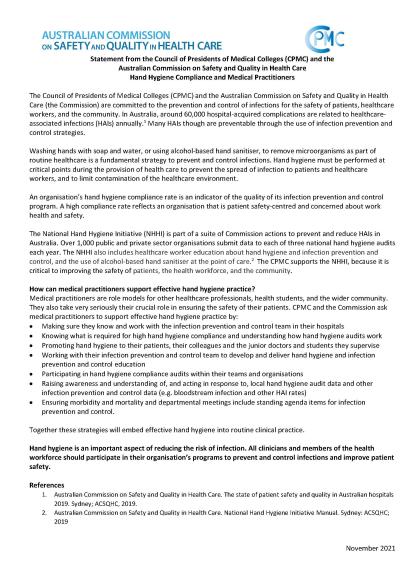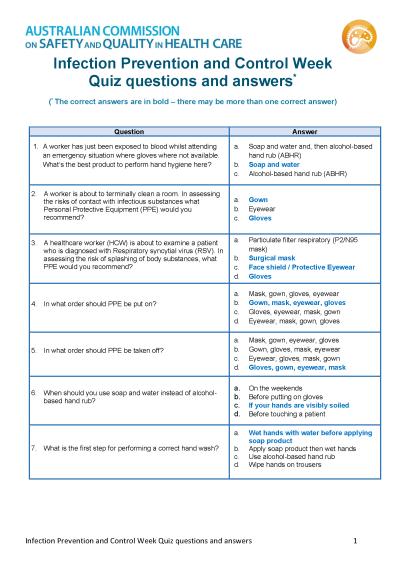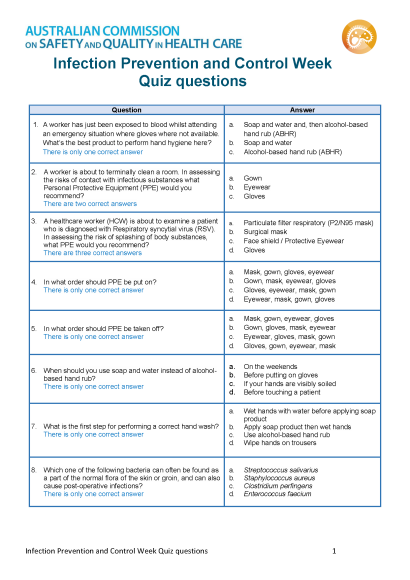The Infection Prevention and Control (IPC) Advisory Committee provides a mechanism for the Commission to consult with experts and key stakeholders on the development and implementation of national initiatives related to IPC.
The Commission has developed a guide to support incident management. The guide consolidates best practice approaches based on literature reviews and the Australian states’ and territories’ incident management policies.
The NMA Scheme for Ethical and Scientific Review of Multi-Centre Research is consistently recognised as a key enabler for clinical trials and research conduct in Australia. Consultation is underway for the development of a National Accreditation Scheme.
Infection Prevention and Control (IPC) Week is held during the third week of October each year to highlight the importance of preventing infections. The theme for IPC Week 2024 is ‘Move the needle on IPC by breaking the chain of infection!’.
The Commission has developed a series of fact sheets for consumers and carers about infection prevention and control, and common and emerging healthcare-associated infections.
Quality statement 5
A patient treated for anaphylaxis remains under clinical observation for at least four hours after their last dose of adrenaline, or overnight as appropriate according to the Australasian Society of Clinical Immunology and Allergy Acute Management of Anaphylaxis guidelines. Observation timeframes are determined based on assessment and risk appraisal after initial treatment.
Quality statement 1
A patient with acute-onset clinical deterioration with signs or symptoms of an allergic response is rapidly assessed for anaphylaxis, especially in the presence of an allergic trigger or a history of allergy.
Guidance for clinicians on the six evidence-based quality statements from the clinical care standard, as well as helpful resources.



